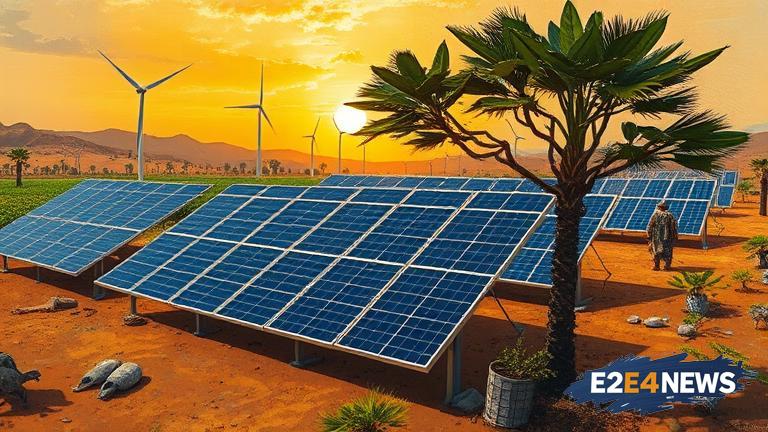Africa has been witnessing a significant shift towards renewable energy in recent years, driven by the need to reduce dependence on fossil fuels and mitigate the impacts of climate change. The continent is endowed with abundant renewable energy resources, including solar, wind, hydro, and geothermal energy. Many African countries have set ambitious targets to increase their share of renewable energy in the energy mix. For instance, South Africa aims to generate 20% of its electricity from renewable sources by 2030. Similarly, Kenya has set a target of 70% of its electricity from renewable sources by 2030. The African Union has also launched the Africa Renewable Energy Initiative, which aims to achieve at least 300 GW of renewable energy capacity by 2030. The initiative has received significant support from international organizations and donors. The use of renewable energy in Africa has numerous benefits, including reducing greenhouse gas emissions, improving energy access, and creating jobs. Renewable energy can also help to reduce the cost of energy, which is a significant burden for many African households. In addition, renewable energy can help to improve energy security, reduce dependence on imported fuels, and promote economic development. However, the transition to renewable energy also poses significant challenges, including the need for significant investment in infrastructure and technology. Many African countries also face challenges in terms of energy storage, grid integration, and policy frameworks. Despite these challenges, many African countries are making significant progress in the development of renewable energy. For example, Morocco has launched several large-scale solar and wind energy projects, while Egypt has announced plans to generate 20% of its electricity from renewable sources by 2022. Rwanda has also made significant progress in the development of renewable energy, with a focus on off-grid energy solutions. The private sector is also playing a critical role in the development of renewable energy in Africa, with many companies investing in renewable energy projects across the continent. International organizations, such as the International Renewable Energy Agency (IRENA), are also providing significant support to African countries to develop their renewable energy sectors. The development of renewable energy in Africa has the potential to transform the continent’s energy landscape and promote sustainable development. It is essential for African countries to continue to invest in renewable energy and to develop policies and regulatory frameworks that support the development of the sector. The use of renewable energy can also help to promote energy access, which is a critical challenge facing many African countries. Many African countries have significant energy deficits, with millions of people lacking access to modern energy services. Renewable energy can help to address this challenge by providing energy access to off-grid communities. In conclusion, Africa’s renewable energy revolution is gaining momentum, driven by the need to reduce dependence on fossil fuels and mitigate climate change. The continent has significant potential for renewable energy development, and many countries are making significant progress in the development of the sector. However, there are also significant challenges that need to be addressed, including the need for investment in infrastructure and technology, and the development of policy frameworks that support the development of renewable energy.
